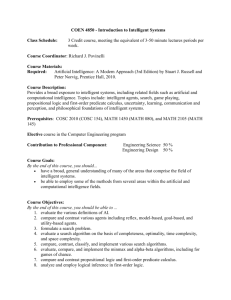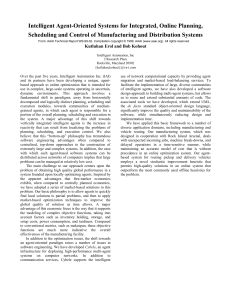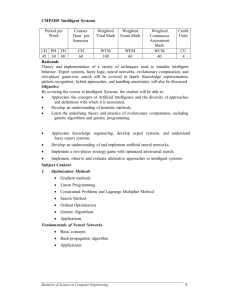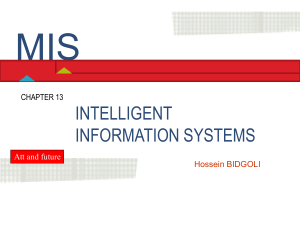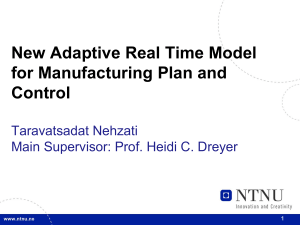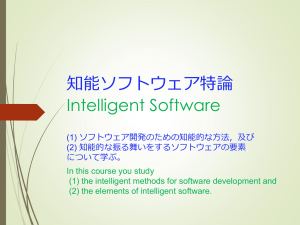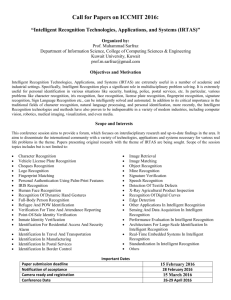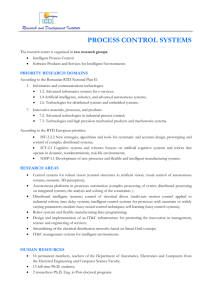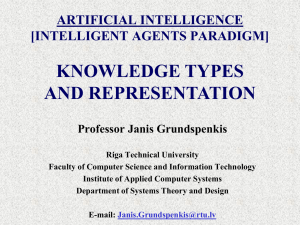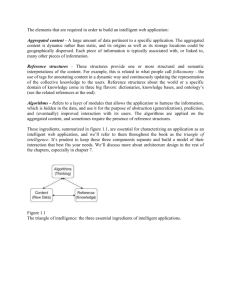Journal of Round table session on 6 Intelligent Systems 17
advertisement
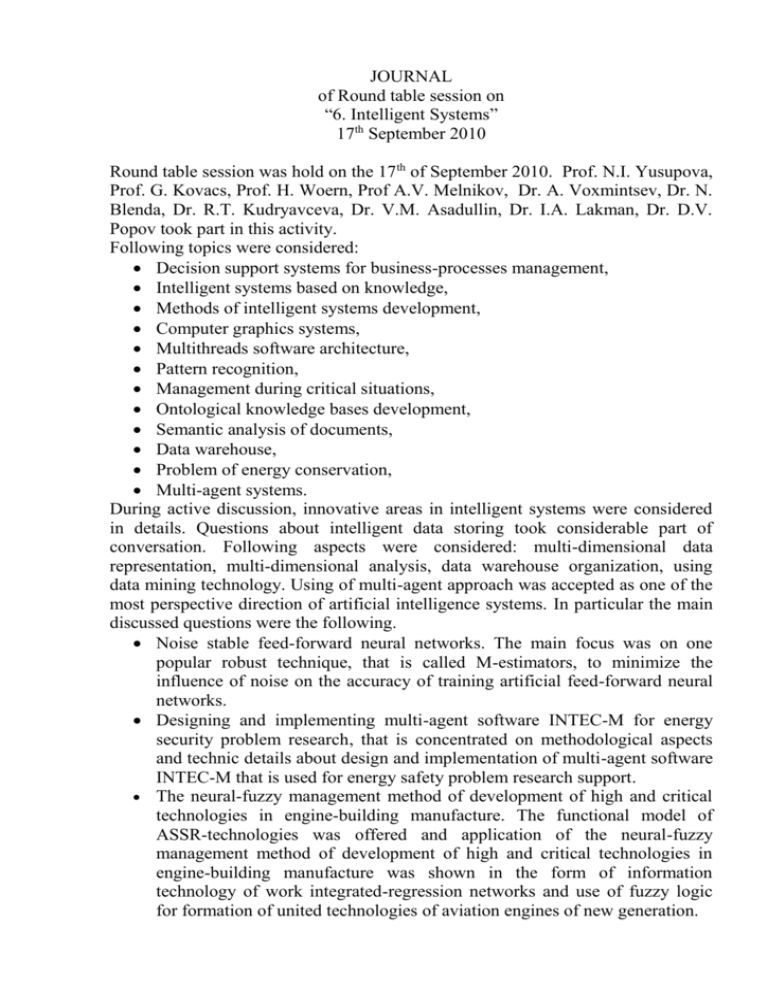
JOURNAL of Round table session on “6. Intelligent Systems” 17th September 2010 Round table session was hold on the 17th of September 2010. Prof. N.I. Yusupova, Prof. G. Kovacs, Prof. H. Woern, Prof A.V. Melnikov, Dr. A. Voxmintsev, Dr. N. Blenda, Dr. R.T. Kudryavceva, Dr. V.M. Asadullin, Dr. I.A. Lakman, Dr. D.V. Popov took part in this activity. Following topics were considered: Decision support systems for business-processes management, Intelligent systems based on knowledge, Methods of intelligent systems development, Computer graphics systems, Multithreads software architecture, Pattern recognition, Management during critical situations, Ontological knowledge bases development, Semantic analysis of documents, Data warehouse, Problem of energy conservation, Multi-agent systems. During active discussion, innovative areas in intelligent systems were considered in details. Questions about intelligent data storing took considerable part of conversation. Following aspects were considered: multi-dimensional data representation, multi-dimensional analysis, data warehouse organization, using data mining technology. Using of multi-agent approach was accepted as one of the most perspective direction of artificial intelligence systems. In particular the main discussed questions were the following. Noise stable feed-forward neural networks. The main focus was on one popular robust technique, that is called M-estimators, to minimize the influence of noise on the accuracy of training artificial feed-forward neural networks. Designing and implementing multi-agent software INTEC-M for energy security problem research, that is concentrated on methodological aspects and technic details about design and implementation of multi-agent software INTEC-M that is used for energy safety problem research support. The neural-fuzzy management method of development of high and critical technologies in engine-building manufacture. The functional model of ASSR-technologies was offered and application of the neural-fuzzy management method of development of high and critical technologies in engine-building manufacture was shown in the form of information technology of work integrated-regression networks and use of fuzzy logic for formation of united technologies of aviation engines of new generation. Development of an ontological knowledge base on the basis of classification of tasks and methods of organization control, which deals with a knowledge base which includes business rules and cases in decision making in critical situations, integrated in the semantic network of ontology. Dataware for decision-making support at financial flow managing, concerning the banking system as one of the important elements of the economy, in many respects determining its development. Methods of knowledge engineering for decision-making support system in computer-based system for oil company “Rosneft”, connected with new and fast developing area of the practical activities. Expert system for diagnosing occurrence of the defects on the loops of compressor stations. The issues of artificial intelligence and intelligent systems design were touched upon in the many reports presented in such sessions as “Mathematical models and information systems”, “IT in education”, and “Computer network technologies and Web”. The best report in research session “Intelligent systems” is award to V.M. Asadullin.

